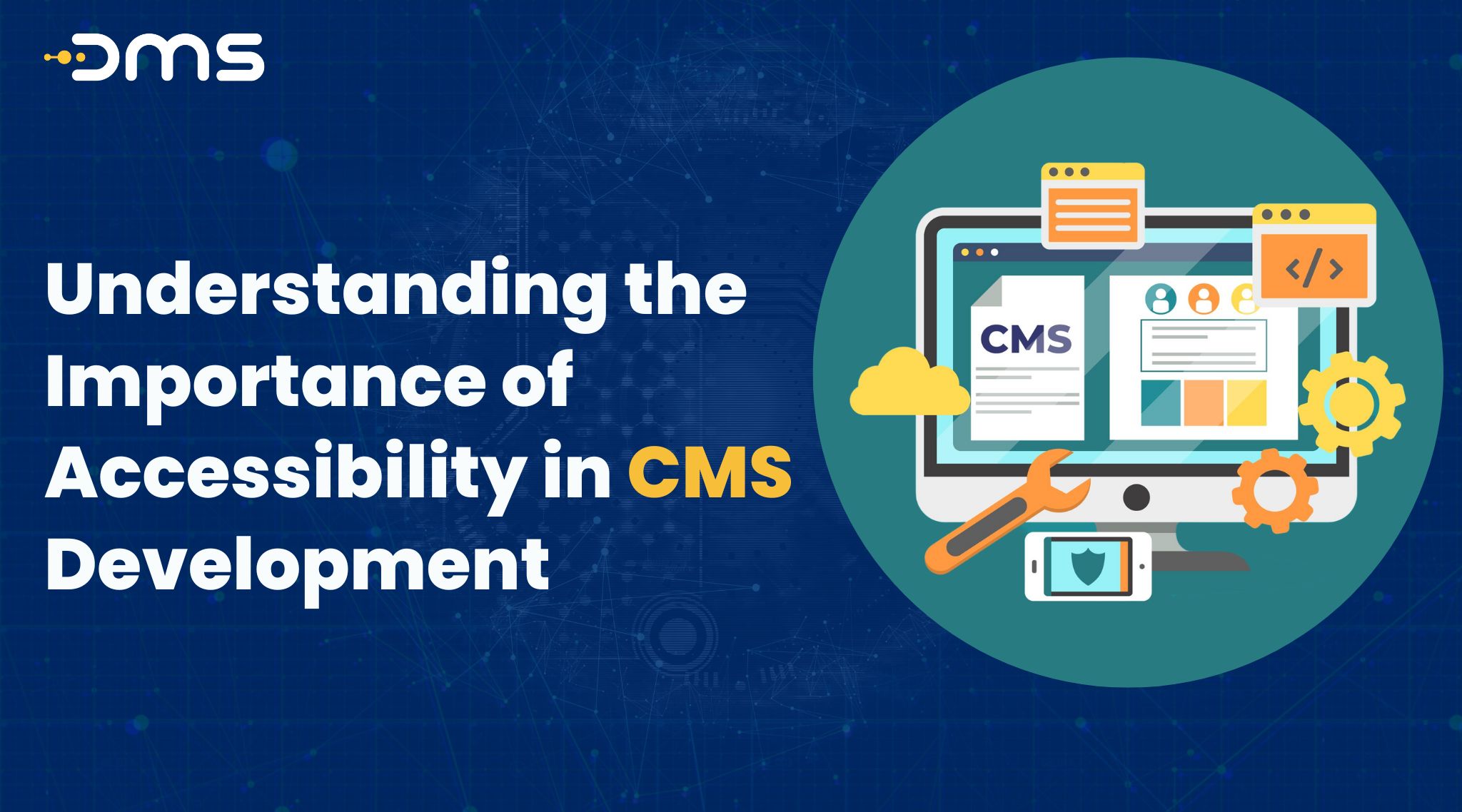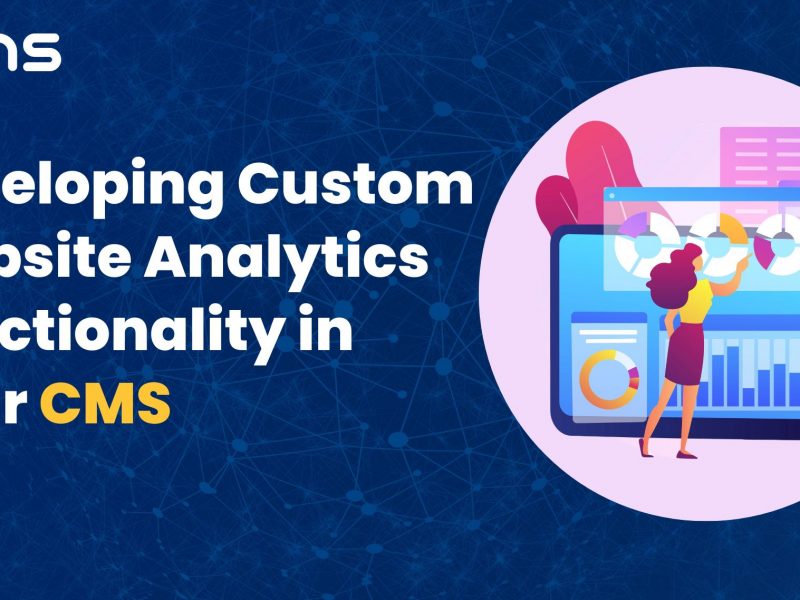The importance of accessibility in cms development is essential when it meets modern internet requirements. The crucial role of accessibility in the creation of content management systems (CMS) will be covered in this article. We will look at the many accessibility considerations that must be made and the reasons that it is essential that we render the site accessible to all users.
Introduction
Making sites and digital material available to all users has become increasingly important in recent years. This is especially true for CMS development, where accessibility can make or break a website’s success. We will look at the importance of accessibility in cms while developing a robust website, the moral and legal requirements for accessibility, creating for accessibility, user experience, CMS development for accessibility, accessibility standards and guidelines, accessibility testing, tools and resources, common accessibility barriers and how to get around them, the future of accessibility, the business case for accessibility, and accessibility case studies in this article.
What is Accessibility in CMS Development?
The capacity of persons with disabilities to use and access digital content is referred to as accessibility. It covers those with physical, mental, visual, or hearing impairments. In CMS development, accessibility means designing and developing websites and digital content that can be used by everyone, regardless of their abilities.
Legal and Ethical Obligations for Accessibility
In CMS development, there are moral and legal requirements for accessibility. The Americans with Disabilities Act (ADA) must be met with all publicly accessible websites and digital content. The World Wide Web Content Accessibility Suggestions (WCAG) and the European Union Web Accessibility Directive represent only a couple of the global accessibility standards and recommendations that are offered here. Since having the internet accessible to all individuals is the right thing to do, it is crucial to take the ethical implications of accessibility into account.
Benefits of Accessibility in CMS Development
There are many benefits to making your website accessible through CMS development. All users, not only those with disabilities, gain from improved accessibility. Additionally, because more people can access it, it expands the audience and draws attention to your website. Accessibility also improves search engine optimization (SEO), as search engines favor accessible websites. In addition, making your website accessible can also help you avoid legal issues and improve your brand’s reputation.
Designing for Accessibility
The needs of all users must be carefully taken into account while designing for accessibility. This includes using clear and concise language, providing alternative text for images and videos, and ensuring that all content is easy to navigate. Furthermore, it’s critical to arrange text using headings and subheadings and to utilize easily readable fonts and colours.
User Experience (UX) in Accessibility
User experience (UX) is an essential aspect of accessibility in CMS development. Users must be able to easily browse your site, find the data they need, and complete tasks. Inaccessible websites can be frustrating for users with disabilities, leading to a negative user experience. It’s critical to take into consideration the requirements of all users and offer clear, succinct information if you want to improve UX for accessibility.
CMS Development for Accessibility
CMS development for accessibility requires careful consideration of the design and development process. It is crucial to choose a CMS platform that is accessible and can be customized to meet the needs of all users. The development process should also include accessibility testing and validation to ensure that the website is accessible to everyone.
Accessibility Standards and Guidelines
Accessibility standards and guidelines provide a framework for designing and developing accessible websites. The primary accessibility standards were the Web Content Accessibility Guidelines (WCAG), which offer a set of instructions to help make websites accessible. In addition, there are several other accessibility standards and procedures, including the European Union Web Accessibility Directive and the Section 508 Standards.
Accessibility Testing
Accessibility testing is an essential part of CMS development for accessibility. Testing for accessibility ensures that the website complies with accessibility standards and guidelines and is able to be used by persons with impairments. When evaluating accessibility, a variety of tools and methods are available, including user testing, automated testing, and manual testing.
Accessibility Tools and Resources
During CMS development, there are various accessibility tools and resources accessible. You can use those tools and resources to create inclusive websites, test them for accessibility, and make sure your website complies with all applicable standards and rules. Some popular accessibility tools and resources include screen readers, accessibility plugins, and accessibility checkers.
Common Accessibility Barriers and How to Overcome Them
There are several common accessibility barriers that can make it difficult for people with disabilities to access digital content. These barriers include inaccessible images and videos, poor navigation, and inaccessible forms. To overcome these barriers, it is important to provide alternative text for images and videos, use clear and concise language, and ensure that all content is easy to navigate.
The Future of Accessibility in CMS Development
The future of accessibility in CMS development is bright. It is getting simpler to create and create websites that are accessible as a result of rising accessibility awareness and technological advancements. In the years to come, we might expect to see more accessibility tools and resources as well as a greater emphasis on user satisfaction for those with impairments.
The Business Case for Accessibility
There is a strong business case for accessibility in CMS development. Having your online presence accessible will broaden your audience and improve your brand’s visibility. Additionally, it can assist you in avoiding legal issues. Additionally, accessibility may improve search engine optimization (SEO), improve revenue, and increase sales.
Case Studies in Accessibility
There are many case studies that demonstrate the importance of accessibility in CMS development. These case studies highlight the benefits of accessibility and showcase how accessible websites can improve the user experience for all users. The BBC’s accessibility improvements and the accessibility programmes at the University of Illinois at Urbana-Champaign are a few examples of well-known example studies.
Conclusion
In conclusion, the importance of accessibility in cms plays a significant role in CMS development. Along with simply being the right thing to do, making the website accessible to all users, regardless of their ability, provides many advantages for your company. By designing and developing accessible websites, you can improve the user experience for all users, increase your reach and visibility, and avoid legal issues. Accessible websites that are user-friendly and simple to navigate can be made with the correct equipment and materials.


